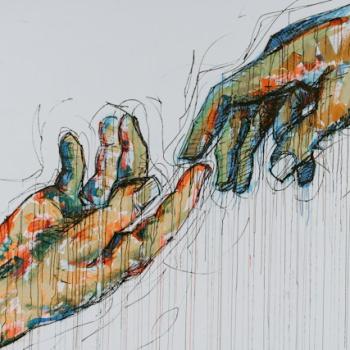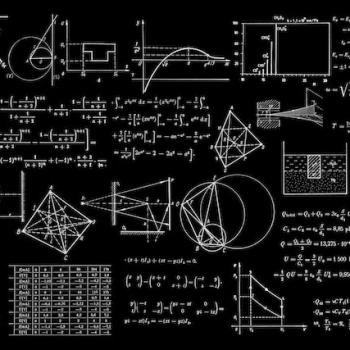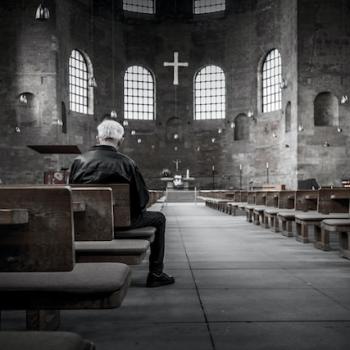
A recent project at work led me to research the “reserved powers” outlined in the constitution and bylaws of governing non-profit boards. What I thought would be an exercise in incomprehensible legal jargon and abject boredom became a surprisingly interesting task. My school is an incorporated entity in itself but is also a sponsored ministry of a religious order. That order has “reserved powers” than cannot be usurped by the board of directors or administration of the school. For instance, the power to change the school’s mission or sell all its assets is “reserved” for the sponsoring order.
Okay, so it’s a little boring. But I was intrigued by the way my school’s governing powers reflect the federalist division of powers in the country at large. A brief civics lesson: Delegated powers are those only the federal government has, like the ability to print money or declare war. Reserved powers are those reserved to the individual states by the 10th Amendment, like creating schools and managing police and fire departments. Concurrent powers are those shared by both federal and state governments, like establishing courts and collecting taxes.
Yeah, still boring, but hang with me. Here’s where it starts to get interesting. I’ve realized this week that I have a problem with reserved powers. And I don’t think I’m the only one.
Say What?
Just a little over a week ago I lost someone who has been very important in my life. Any success I’ve had professionally can be traced back in large part to her influence, and for a couple decades, she was one of my closest friends. I only learned of her illness shortly before she died, so I didn’t get to say goodbye or tell her that she would have won a Tony in the Broadway show version of my life.
So, I did what I imagine a lot of us do when we are in shock and in pain and trying to make sense of senseless grief. Especially when the current loss rips the scab off all the other losses and makes them bleed again. I curled up in my bed and sobbed. I used stunningly foul language. I bought an expensive new blouse for Easter, an extravagant purchase I never would have made if I weren’t hell-bent on finding something that might make me feel better. I cried some more.
I reorganized my purse, a frequent strategy for me when life feels out of bounds. Somehow, being able to find my sugarless gum and lip gloss helps me feel more in control of my world. I binge-watched a vapid show. I drank too much wine. And I refused to lift up my pain in prayer out of spite and stupidity, as though that would show God alright. Just let him screw with me and a bearable universe again and expect me to roll over. So I rolled over in bed and cried some more.
That which we name remains part of us.
That which we name lives on.
I’d like to say that faith makes things feel better, but I don’t think it does. I think pain will always feel like pain no matter what creed or cult we cling to. Faith doesn’t prevent or lessen our hurt. But it can help us find a meaningful way through it.
So . . . Reserved Powers?
If the Christian faith had a constitution and bylaws, it would have to be the Bible. And the all-important “We the people” preamble would have to be the very beginning of the Old Testament. It’s interesting to me – yes, genuinely interesting – that the preamble to sacred scripture is a not a statement but a story. Actually, it’s two.
Genesis 1 is the story of God creating the universe in seven days, and Genesis 2 is the story of Adam and Eve in the Garden of Eden. In a sense, the beginning to this “constitution” lays out the “delegated powers” that are God’s alone and the “reserved powers” that have been given to humans.
The most striking thing for me about the first story is that as God creates, he takes the time to pronounce everything “good.” Everything. And this job is God’s and God’s alone; it’s not a task he shares with the First Couple. In the Genesis 2 story, he does give Adam an important job – that of naming all the creatures God has created.
What’s in a Name?
Like I said, I have a problem with “reserved powers.” The power to “name” is mine, but sometimes I want the “delegated power” that only God has – to determine what is “good.” Now let’s be clear. I don’t for one second think any God worthy of the title would say that death, pain, suffering is “good.” It’s not. Period. So, let’s lose that loaded word and replace it with something more useful. Perhaps God identifying all creation as “good” is another way of saying that the fabric of the universe is grandly intricate and fantastically woven. Life is life and even in its ugliness, it is terribly beautiful. In short, it is what it is.
Creation includes many threads: the colorful beauty of spring and the scourge of simmering violence; the warmth of human compassion and the sting of myopic greed; the giddy excitement of young love, and yes, the gut-wrenching, soul-crushing pain of loss.
But here’s the thing. If you tug on one of the threads, you unravel the entire tapestry. It’s kind of a package deal. You don’t get to choose the parts you want. Whether you like it or not, you get the whole damn thing. I didn’t make the rules. It’s just how it is. Universe 101. It is what it is.
My Swim Lane
My problem is that I don’t want to stay in my swim lane. I want to decide what threads should be part of the tapestry. I want to pronounce this one “good” and that one “bad.” But those are powers that have not been delegated to me.
I do, however, have the “reserved power” to NAME. I can’t choose the thread, but I can name each strand for its significance in my life. The way we name our life experiences colors how we experience our lives. Ironically, it’s in the act of naming something that we truly see it for what it is. Isn’t that what religion is all about anyway? Naming that which would otherwise go unrecognized? Isn’t that what the terms “incarnation” and “holy spirit” and “resurrection” are? Our attempt at using language to name a reality that is forever beyond language? And isn’t that what ritual is? Our attempt to participate in the divine dance in a human ballroom?
We don’t get to choose the threads in the tapestry, but we can name them. We can identify their significance. We can say, “See this here? It taught me courage. And this over here? It made me strong. And this one too? It would have won a Tony in the Broadway show version of my life.” It is in the naming, not the judging, that we find meaning. That which we name remains part of us. That which we name lives on.











